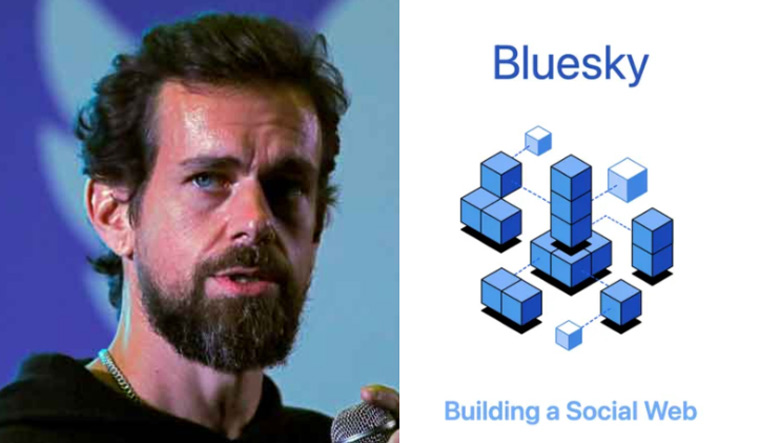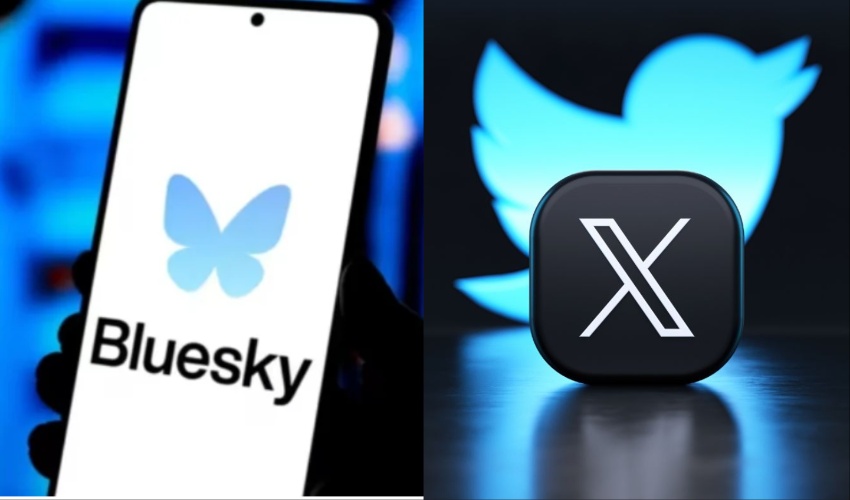Amid growing discontent with X (formerly Twitter), social media users particularly in Pakistan are flocking to a new alternative: Bluesky.
The platform, which has seen a surge in new sign-ups globally is quickly gaining traction in Pakistan, where X has become increasingly inaccessible without the use of a VPN.
As of mid-November 2024, Bluesky’s user base has exploded from 13 million in late October to 15 million, with over a million new sign-ups per day. The rapid migration is being fueled by dissatisfaction with X’s recent policies and its management under Elon Musk, compounded by the growing appeal of Bluesky's decentralised, user-centric model.
Why is Bluesky gaining popularity in Pakistan?
Bluesky’s sudden rise in Pakistan comes in the wake of increasing accessibility issues with X. Due to government restrictions and the growing need for a VPN to access X, many Pakistani users have turned to Bluesky as an alternative. The appeal of Bluesky lies in its promise of a cleaner, more user-friendly experience, offering similar features to X but without the toxicity and complexities of Musk’s platform.
In Pakistan, as well as other regions, Bluesky is becoming a popular alternative for those frustrated by X’s changes. This includes the recent controversial policy change that allows blocked users to view public accounts. 
Bluesky, on the other hand, offers enhanced moderation tools, which allow users to control their feeds more effectively and avoid unwanted interactions. These features, along with a decentralized architecture that ensures greater privacy and security, have drawn many users seeking refuge from the increasingly chaotic and regulated environment on X.
What is Bluesky?
Bluesky, originally conceived as a project within Twitter by co-founder Jack Dorsey, was designed to create an open, decentralized standard for social media. Launched in 2021 as an independent entity, Bluesky has quickly evolved into a strong competitor to X, offering a more customizable and transparent user experience.
The platform operates on a decentralized model, meaning that instead of relying on centralized servers owned by one company, users can host their data on independent servers that align with their community values. This contrasts sharply with X, where user data is controlled by one entity, raising concerns about privacy and censorship.

Bluesky’s decentralized structure allows users to join or create servers that better reflect their personal values and preferences. This gives users greater control over the content they see and share, which is a significant draw for those frustrated with X’s algorithm-driven feeds. While X pushes content based on algorithms, Bluesky limits visible posts to those from followed accounts, ensuring a more personalized and less overwhelming experience.
Growing discontent with X under Musk’s leadership
The dissatisfaction with X has escalated under the leadership of Elon Musk. Since Musk's acquisition of Twitter, the platform has undergone numerous changes, some of which have alienated longtime users.
From the reinstatement of banned accounts to the easing of block functions that allow blocked users to still view public posts, many feel that X has strayed too far from its original purpose as a platform for open, moderated discussion.
The situation has worsened with Musk’s increasingly close association with political figures like US president-elect Donald Trump, which has raised concerns about X's role in amplifying misinformation and extremist content. This has prompted both international organizations and users to seek alternatives, with many finding refuge in Bluesky’s commitment to transparency, privacy, and content moderation.
Bluesky’s rapid growth has been further accelerated by recent political developments. When X temporarily halted operations in Brazil in September, Bluesky saw a significant influx of new users, with 2.6 million sign-ups, 85% of whom were Brazilian. In Pakistan, where X remains restricted, Bluesky has become a beacon for those in search of a safer and more controlled social media environment. Many Pakistani users, including journalists and public figures, are shifting to Bluesky, seeking a platform that allows them to share their content without the risk of harassment or exposure to misinformation.
Who’s making the switch?
Bluesky’s appeal is not limited to ordinary users. Prominent public figures, journalists, celebrities, and even politicians are jumping ship from X to Bluesky. In the UK, MPs such as Jess Phillips, Layla Moran, and Diane Abbott have made the move, and across the globe, celebrities like Jamie Lee Curtis, Chris Packham, and Dara Ó Briain have followed suit. These figures are looking for a platform that offers greater control over their interactions and a space free from the increasing toxicity found on X.
In Pakistan, this trend is being mirrored. Journalists, activists, and public figures are embracing Bluesky, appreciating its cleaner, ad-free environment that encourages more meaningful interactions. Celebrities, influencers, and even politicians who had previously been vocal on X are now increasingly opting to voice their opinions on Bluesky, which offers them a space that aligns more with their values.
What makes Bluesky different?
One of the defining features of Bluesky is its commitment to moderation. On Bluesky, users can choose the algorithms that drive their feeds, giving them the ability to curate their online experience. This could mean creating a feed tailored to close friends, specific interests, or more formal professional connections. Bluesky also allows users to customize their profile handles, which is particularly useful for journalists, public figures, and professionals who want to add a layer of verification to their accounts.
In contrast, X’s recent modifications to its block function—where blocked users can still view public accounts—have drawn sharp criticism from users who feel that the platform is becoming more permissive toward harmful content. Bluesky, however, offers "anti-toxicity" features that allow users to detach their posts from unwanted interactions, protecting them from online harassment.
Bluesky’s moderation tools and user-centric features, such as customizability and a focus on user control, make it a strong contender for those looking for a safer, more enjoyable online experience. Its decentralized model, which puts the power back in the hands of the users, has made it a go-to platform for those dissatisfied with the direction X is headed.


























